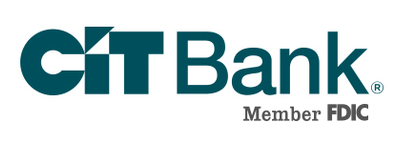What Is a Certificate of Deposit (CD)?

Our evaluations and opinions are not influenced by our advertising relationships, but we may earn a commission from our partners’ links. This content is created by TIME Stamped, under TIME’s direction and produced in accordance with TIME’s editorial guidelines and overseen by TIME’s editorial staff. Learn more about it.
A certificate of deposit (CD), is a type of time-bound savings account that offers the opportunity to earn a higher rate of interest that’s guaranteed, based on a lump-sum deposit. You can open a CD at most banks and credit unions with a variety of terms and interest rates.
Because you agree to deposit a fixed amount of money for a certain period of time, financial institutions tend to offer you a higher interest rate compared with other types of deposit accounts. You sign up for a CD much as you would a checking or savings account, though you will have to agree to keep the money in the account for a specific period of time. For instance, if you open a five-year CD, you’ve pledged to keep your money on deposit for five years.
Once you make your initial deposit, you won’t be able to deposit any more money. Interest is compounded during your CD term. How often that happens depends on your bank or credit union, with some CDs compounding daily and others monthly. You will not, however, be able to receive the interest you’ve earned until your CD matures.
Most financial institutions will automatically renew your CD upon maturity. There should be a grace period, typically seven to 10 days, during which you have the ability to choose a rollover or to withdraw your funds without penalty. If you withdraw money before maturity, you will in most cases need to pay an early-withdrawal penalty.
A CD is best for those who want a short-term savings vehicle with a higher interest rate than a checking or savings account. It’s also best for those who want a safe investment, as a CD offers a guaranteed rate of return for a certain period of time. What's more, deposits are insured by either the Federal Deposit Insurance Corporation (FDIC) or the National Credit Union Administration (NCUA). If the financial institution you where have your CD fails, your money is safe (at least up to $250,000).
If, on the other hand, you’re looking at investing for the longer term with a potentially higher rate of return—and you are comfortable with some volatility and risk—a CD may not be your best option. Also, if you think you may need access to your money before the CD maturity date, you also should consider other alternatives.
It’s important to learn what the different CD components are. Only then can you compare accounts to find the best one for your financial needs.
The “term” is the period of time that your CD will last. You select your term before making your initial deposit. Some examples include 6-month CDs or 1 year CDs.
The “interest rate” is the rate of return you will receive at the end of your CD term. It is usually a fixed rate. Any interest you earn may be compounded at specified intervals, such as daily or monthly. The more often it is compounded, the faster your money will grow.
The maturity date is when your CD term expires. You will be given this date when you sign up for your CD.
The “initial deposit” is the amount you agree to put into your CD at opening. CIT Bank, for instance, has a $1,000 minimum deposit for most of its CDs. You can only make one deposit per CD term—if you renew a CD you can lower or raise the amount in it.
An “early-withdrawal penalty” is what you must pay if you decide to withdraw money before the CD maturity date. The penalty will depend on the stipulations imposed in your CD contract. It can differ depending on when you make the withdrawal and is based on the interest you would have earned had you left your money in the CD.
The federal funds rate, determined by the Federal Reserve, has a huge influence on how rates are set for financial products, including CDs. This is because the rate affects the prime rate, which is the lowest interest rate banks charge their customers. If the prime rate rises, CD rates tend to go up, and vice versa. Also, banks that want to attract new and existing customers may boost their CD rates in order to compete with other financial institutions.
While a CD can compound interest daily or monthly, when it pays interest will depend on your bank and the contract provisions. For instance, your CD can pay out interest monthly, quarterly, or annually.
One of the main advantages of a CD is that you’re earning a guaranteed rate of interest for a predetermined amount of time. In addition, the amount on deposit is generally insured, meaning you won’t lose money if your bank fails. However, you may not earn as much interest compared with other types of investments, and the rate you earn may not be competitive if inflation is high.
Pros:
Cons:
When shopping around for a CD, take into account the following considerations when making your comparisons.
Depending on the bank and the CD account, there is usually a minimum amount you need to deposit. Make sure you can afford this amount. In some cases you may earn a higher interest rate the more you deposit.
When you earn interest, the bank will deposit it into your CD account at regular intervals, though you won’t be able to withdraw the money until your account matures. The interest earnings count as taxable income in the year the bank reports them. Even if you won’t be able to access the money, you will need to report this income on your tax return.
Yes, you can withdraw money from your CD before the maturity date, but you will end up paying for it. Typically, banks will charge you an early-withdrawal penalty based on the length of your CD term and the interest you earn for a month or more. The longer the term, the larger your penalty. For example, if you have a two-year CD, your bank might impose a one-month interest penalty, whereas those with a four-year CD could have a penalty that’s three months’ worth of interest. Some banks, like CIT, offer a no-penalty cd where you can cash in your return tax-free after 13 months.
Most CDs will automatically roll over once they mature, typically for an identical term. However, the interest rate on the renewed CD may not be the same, and it might be lower than what you were offered before. Instead of letting nature take its course with an automatic renewal, consider shopping around for a new CD. It offers you more control over your money.
A money market account (MMA) is a type of savings vehicle that typically offers a higher interest rate than a checking or savings account. On some occasions the rate can be similar to or higher than a CD. The main difference is that, with a CD, you’ve agreed to keep your initial deposit in the account until the maturity date—whereas, with an MMA, you haven’t. In other words, your money is more liquid in an MMA. However, an MMA may require you to maintain a minimum deposit amount to avoid being charged a maintenance fee or not earning interest.
A high-yield savings account (HYSA) earns a higher rate of interest than a traditional savings account, but it may not earn as much as a CD. There can be exceptions to this when interest rates go up, whether due to inflation or a healthy economy. You can withdraw money from a HYSA whenever you want.
Many HYSAs are online bank accounts, and some financial institutions, such as Quontic, offer other incentives for your depositors, such as earning cash back on debit card purchases.
Both CDs and bonds are considered “safe” investments because of their steady rates of return. However, a bond doesn’t offer a guaranteed rate of return, though it could earn you more compared with a CD. Also, you can lose the initial investment you put into a bond, as it’s generally not insured, unlike a CD. Bonds can, however, be a great way to diversify your investment portfolio. Consider working with a bank that offers a variety of account opportunities, such as Axos Bank.
A Treasury bill is a type of short-term investment issued by the U.S. Treasury. Like a CD, it has a fixed interest rate and a maturity date. However, you can sell a Treasury bill before its maturity date without incurring a penalty. The maximum term of a Treasury bill is 52 weeks; a CD term, on the other hand, can go as long as 10 years.
A traditional individual retirement account (IRA) offers the opportunity to invest in different types of securities. Unlike a CD, it is a tax-advantaged account, meaning that your earnings are tax sheltered until you withdraw them and your contributions are generally tax deductible. You can also invest in a Roth IRA, which will also grow tax free. With a Roth, your contributions are taxed when you make them, but your earnings are tax free, assuming you withdraw them after you are age 59½ and the account has been open for at least five years.
Both CDs and annuities offer a low-risk way to invest your money, though a CD generally has a shorter term than an annuity. Both are typically insured by the FDIC or NCUA, though an annuity generally offers a higher rate of return. An annuity invests your money and provides you with a fixed and regular payment in retirement, while a CD is simply a savings vehicle into which you deposit your money for a set period of time.
CDs are a great way to earn a higher rate of interest compared with savings accounts. They are particularly suited to paying for a short-term goal or providing an extra savings cushion by utilizing cash that you don’t need to access for a while.
A CD ladder is a strategy designed to maximize the interest you earn while minimizing the amount of time your funds are unavailable to you. For example, say that you open five CD accounts, each with a different term in years, from one to five. You deposit one-fifth of your money into each CD. Then, each year a CD matures, you invest the proceeds into a five-year CD. You get the advantage of higher interest rates while still being able to access a portion of your money at least once a year without penalty.
Upon maturity you can roll over your CD (which typically happens automatically), withdraw the amount in it and spend it, or put the proceeds toward an alternate investment or savings vehicle.
CD rates may keep increasing this year if the Fed chooses to increase the federal funds rate. Though there is no direct correlation between it and CD interest rates, the federal funds rate has a huge influence on bank rates, including those for CDs.
The information presented here is created by TIME Stamped and overseen by TIME editorial staff. To learn more, see our About Us page.




